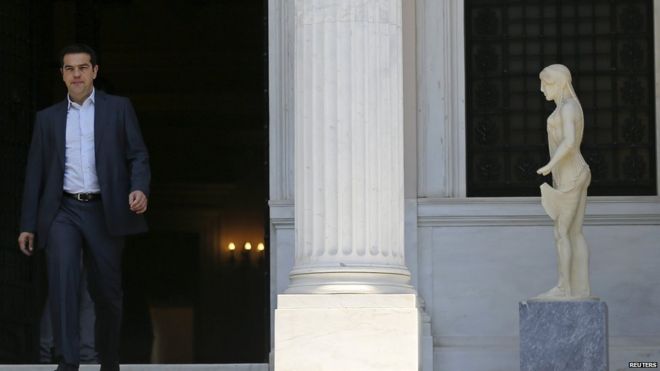
Greek PM Alexis Tsipras has returned to Athens for meetings with officials and members of his government
Greece has until the end of Thursday to present new proposals to secure a third bailout from creditors and prevent a possible exit from the eurozone.
Prime Minister Alexis Tsipras says the “next hours will be crucial”.
His cabinet is meeting to discuss the plans, which need to be submitted to Greece’s creditors by 22:00 GMT on Thursday.
The new proposals will be studied by eurozone finance ministers on Saturday and a full EU summit on Sunday.
The President of the European Council, Donald Tusk, who will chair Sunday’s meeting, said on Thursday that he had spoken to Mr Tsipras and hoped to receive “concrete and realistic proposals of reforms from Athens”.
Such proposals “will have to be matched by an equally realistic proposal on debt sustainability from the creditors. Only then will we have a win-win situation,” Mr Tusk added.
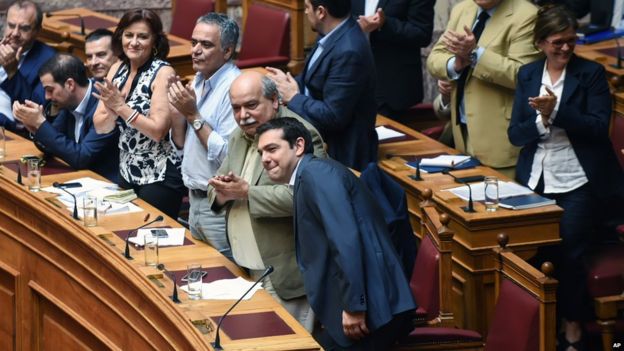
Mr Tsipras was applauded by his cabinet as he arrived in parliament on Thursday
However the German Chancellor Angela Merkel said that “a classic haircut” (meaning reducing the value of Greece’s debts) was “out of the question” for her.
All Greek to you? Debt jargon explained
Speaking in Sarajevo, Mrs Merkel said the eurozone had dealt with the issue of debt sustainability in 2012.
‘Suffering’
She described Sunday’s EU summit as a decisive and important meeting.
“We must not forget that the Greek people are suffering at the moment,” she said.
The Greek government has meanwhile extended bank closures and the €60 (£43; $66) daily limit on cash machine withdrawals until Monday.
The curbs were imposed on 28 June, after a deadlock in bailout talks with creditors led to a rush of withdrawals.
Follow the latest updates here
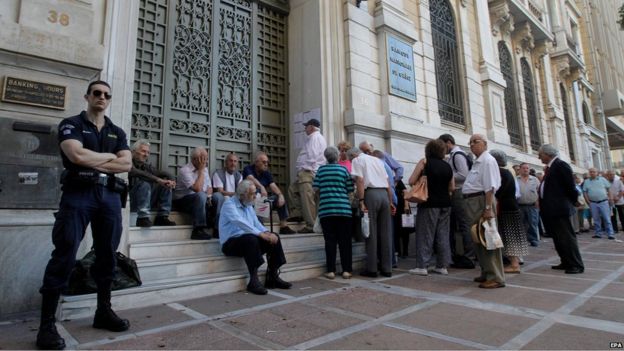
Greek pensioners have been queuing at banks to get cash, as many do not have ATM cards
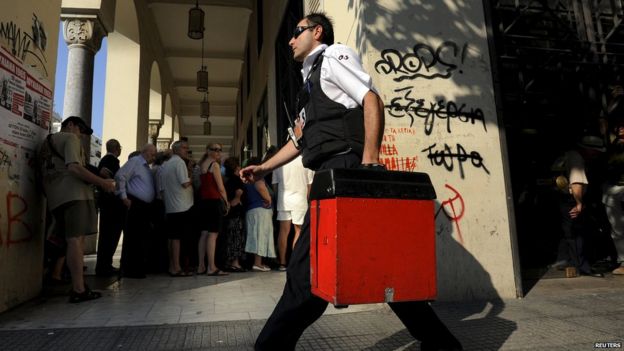
Cash machine withdrawals are limited to just 60 euros a day
Louka Katseli, the head of the Greek bank association, said on Thursday that there was enough liquidity in cash machines to serve the public until Monday.
Crisis countdown
- Thursday 9 July: 22:00 GMT deadline for Greece to submit new proposals
- Friday 10 July: ECB, EU and IMF discuss proposals at technical level
- Saturday 11 July: Eurozone finance ministers discuss plans (Brussels 13:00 GMT)
- Sunday 12 July: Eurogroup leaders meet (14:00 GMT) followed by summit of all 28 members of the European Union (16:00 GMT). Both Brussels
- Monday 20 July: €3bn payment due from Greece to the European Central Bank
Tsipras, Greece’s high-stakes gambler
Why Greece sees France as last hope
How easy is it to swap currencies?
Full coverage of Greek debt crisis
‘Viable solution’
Mr Tsipras returned to Athens on Wednesday night after meetings in Brussels and an address to the European Parliament.
He has pledged to submit “new concrete proposals, credible reforms, for a fair and viable solution” by the end of Thursday. However, the details are scant.
Greece has said it wants a major restructuring of its massive debt, and on Wednesday formally submitted a request for an unspecified loan from the European Stability Mechanism bailout fund.
This would be a fresh loan “to meet Greece’s debt obligations and to ensure stability of the financial system”, Greece says – in other words, to avoid bankruptcy.
In return Greece has suggested it will implement new pension and tax measures from Monday.
On Thursday, EU Economics Commissioner Pierre Moscovici said he was hopeful of a new deal: “I have the sense that the dialogue is established, or restored, and that there is a way out.”
The IMF, lowering its economic growth forecast for the world for 2015, said events in Greece would have a “limited” effect on the rest of the global economy, as Greece makes up just 2% of the eurozone.
Greek scenarios
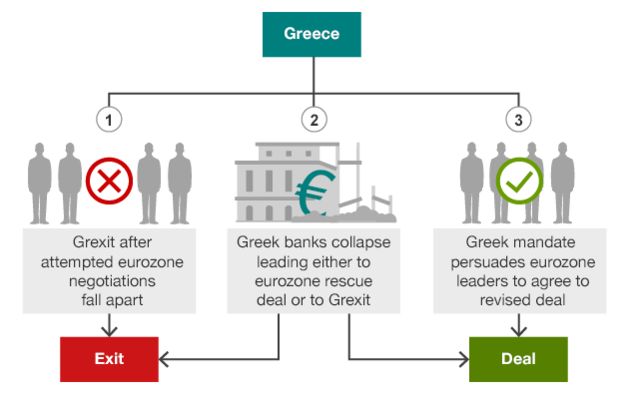
European Stability Mechanism explained
Greece’s creditors – the European Commission, the European Central Bank and the IMF – have already provided more than €200bn in two bailouts since a rescue plan began five years ago.
The second bailout expired on 30 June.
The creditors had hoped for new, concrete proposals from Greece at a meeting on Tuesday but these were not submitted and they instead agreed to set a new deadline of Thursday.
Greece has been warned this is the “final deadline”.
Mr Tusk has said this is “now maybe the most critical moment in the history of the eurozone”.
“This is really and truly the final wake-up call for Greece and for us, our last chance,” he said, adding that failure “may lead to the bankruptcy of Greece”.
Mr Tsipras’s Syriza party was elected in January pledging to oppose the harsh austerity measures demanded by creditors.
And on Sunday, the Greek people decisively rejected the latest bailout proposals from creditors in a referendum.
Energy minister and influential Syriza member Panayiotis Lafazanis insisted on Thursday that Greece would not sign up to a third bailout if it brought “harsh austerity, suffering and deprivation to the Greek people”.
He insisted Greece had “alternative options to a new bailout deal” and there was “no gun pointed at its head”.
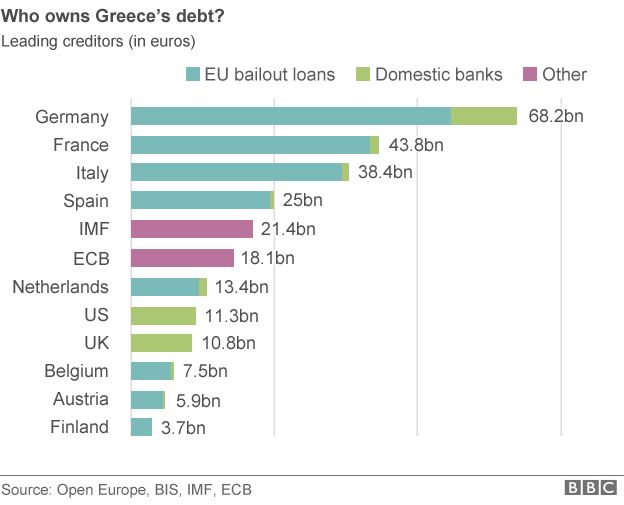
BBC
 Q FM Africa's Modern Radio
Q FM Africa's Modern Radio